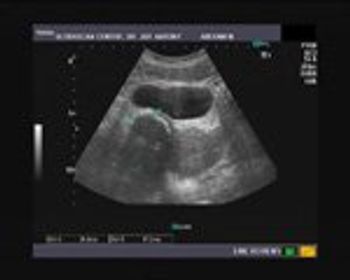
OBGYN.net Conference CoverageFrom the ESHRE 2001 Conference - Lausanne, Switzerland

OBGYN.net Conference CoverageFrom the ESHRE 2001 Conference - Lausanne, Switzerland

OBGYN.net Conference CoverageFrom the ESHRE 2000 Conference Bologna, Italy

OBGYN.net Conference CoverageFrom the ESHRE 2000 Conference Bologna, Italy

With its implications of sexual transmission and potential cervical cancer, a diagnosis of genital warts can be emotionally distressing to patients. Because no single treatment serves every patient, the best approach to selecting a therapeutic option considers the extent of the disease, wart location, and the patient's individual needs.

Pelvic Inflammatory Disease, or PID, is an infectious disease that affects millions of U.S. women and girls each year. Although usually surprisingly easy to treat, it can be hard to diagnose, and can lead to many long-term and troublesome complications.

This KIDS COUNT Special Report contains some hopeful news for the future of America's families. Since 1991, the percentages of American teenagers getting pregnant, giving birth, or having abortions have all fallen.

This was a female patient 32 years old, who had irregular menses. She was married for 5 years but unable to conceive.

And my task for this afternoon is to review for you a new contraceptive option and what I’d like to do first is show you my disclosure statement and then I will go into the first part of discussion, talk about why I think there’s a need for this new contraception option and then go in much greater depth in discussing it.

In his book, "In Pursuit of Fertility," Robert R. Franklin, MD stated, "Over the years, I have observed that women with PCO are in high gear most of the time -- their minds are constantly racing ninety miles an hour" (1995).

Recently, I went to see my new care physician for a regular check up. She did a very thorough job. She did an EKG while I was in her office because there is a history of heart disease in my family on both sides.

Upon reflection, it seems almost unbelievable that I have been living with the symptoms of Polycystic Ovary Syndrome for almost twenty years now.

Well my story started 11 years ago when I was married and decided to try to have a baby. I had noticed a few years before that, that my cycles were not what you would call normal. I always figured that it was not a big deal and I never thought that it would cause any problems as far as fertility was concerned.

My PCOS story really began in January of 1993, after discontinuing the use of birth control pills. I was 19 years old when I stopped taking the pill, I had with my high school sweetheart since I was 15 years old, and on the pill since I was 16.

The Polycystic Ovarian Syndrome Association (PCOSA), a non-profit organization dedicated to the syndrome for which it is named, today announced they will host the PCOSA Online Auction for Aid, Awareness & Advancement.

Polycystic ovary syndrome is characterized by anovulation (irregular or absent menstrual periods) and hyperandrogenism (elevated serum testosterone and androstenedione).

Ovulation assessment is an important part of every infertile couple's evaluation. A complete history and physical by your physician can often uncover obvious concerns.

Polycystic ovary syndrome is characterized by anovulation (irregular or absent menstrual periods) and hyperandrogenism (elevated serum testosterone and androstenedione).

PCOStrategies is sponsoring a participant survey that will be used in research regarding the partnerships between the medical community and non-profits and our combined efforts to educate and raise public awareness about PCOS and Syndrome O.

PCOStrategies of WNC recently held another session of the Syndrome O Survival (SOS) Strategies in November. Some very motivated participants drove two hours into Asheville to join us.

WNC PCOSupport member Lesa Childers (left) and Dr. Stephen Sawin (right)of the Center for Applied Reproductive Science chat during a PCOS lecture atMission St. Joseph's Hospital in Asheville, North Carolina.

PCOS is a genetic hormone disorder which is related to diabetes. PCOS is something you are born with. Symptoms typically usually start appearing after puberty and in a few cases sometimes not until your 20's or early 30's.

It is the most common endocrine disorder in women, the leading cause of infertility, and the most under diagnosed women's disease in the United States.

I am excited to have the opportunity to speak with Lisa Marasco, IBCLC about her research regarding a possible link between PCOS and Breastfeeding difficulties.

The results of ovarian reserve testing are often viewed by patients as either good news or bad. The bad news is that, for patients with low ovarian reserve, implantation rates are generally poor and the possibility of successful pregnancy is very limited.

By Samuel S. Thatcher, M.D.